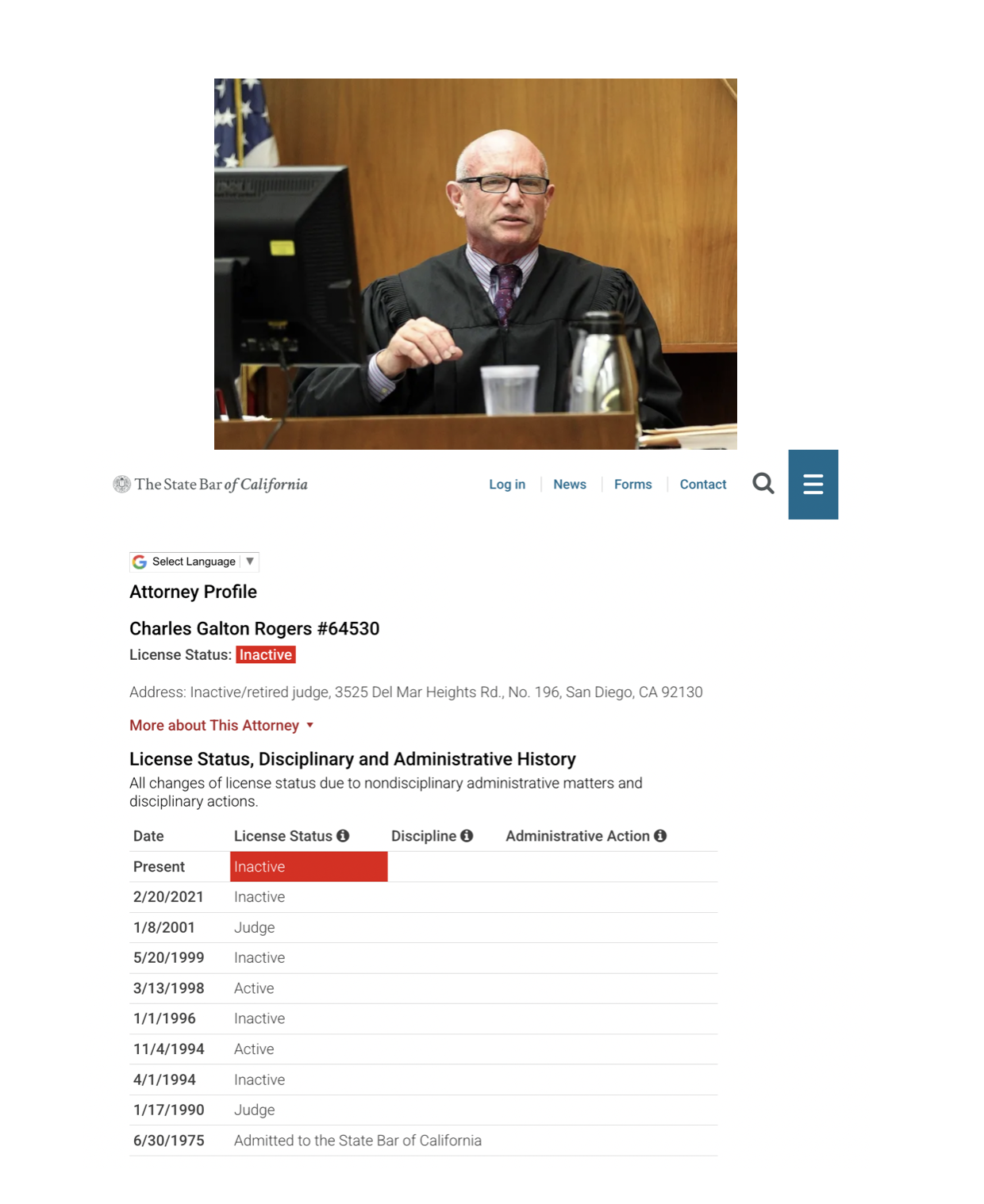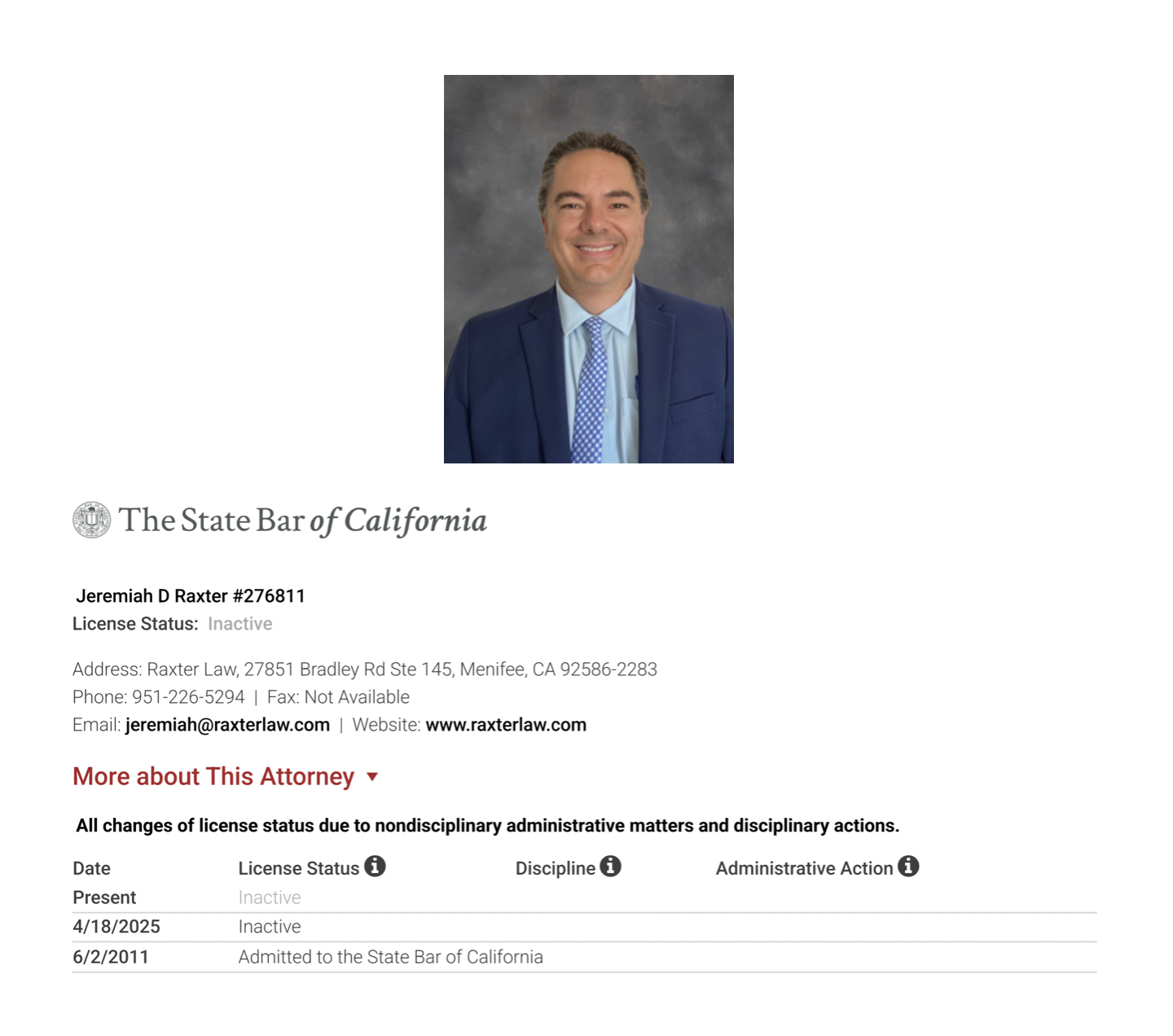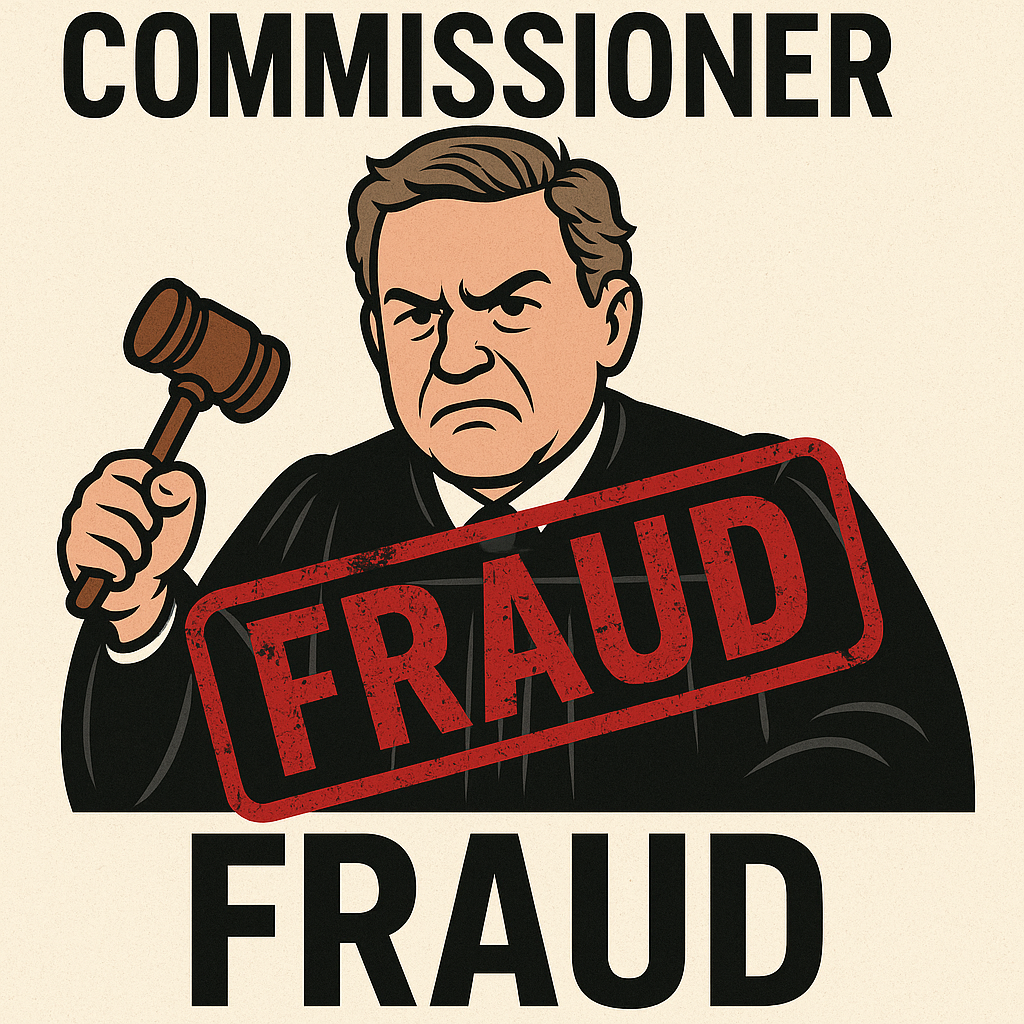Charles Rogers (Bar #64530) and Jeremiah D. Raxter (Bar #276811) are engaged in an ongoing scheme of judicial fraud and racketeering in Riverside County, California. Both individuals are inactive members of the California State Bar and have no lawful authority to act as judges or commissioners. Their acts — including issuing bench warrants, signing orders, and presiding over court matters — are void ab initio and constitute federal felonies under 18 U.S.C. §§ 241, 242, and 1962. Their actions represent a criminal enterprise under color of law, demanding immediate investigation, disbarment, and prosecution. Public notice is hereby given that all their proceedings are fraudulent and without legal force.
In Riverside County, California, individuals Charles Rogers (California Bar #64530) and Jeremiah D. Raxter (California Bar #276811) are engaged in a blatant and ongoing scheme of judicial fraud, unauthorized practice of law, and systematic deprivation of rights under color of law.
Both Rogers and Raxter are currently inactive members of the California State Bar and thus have no lawful authority to act as judges, commissioners, or officers of the court. Their actions in presiding over court proceedings, issuing warrants, signing orders, and exercising judicial powers are executed without lawful authority and are VOID AB INITIO — having no legal force or effect from inception.
- Charles Rogers (Bar #64530), listed as a “judge,” is currently an inactive member of the California State Bar and has no lawful authority to preside over judicial proceedings. Acting without a valid license is a felony under California Business and Professions Code §§ 6125 and 6126.

- Jeremiah D. Raxter(Bar #276811), purporting to act as a “commissioner,” is likewise an inactive member of the California State Bar and has no authority to issue orders or warrants. His acts include the illegal issuance of a bench warrant without jurisdiction, rendering all acts VOID AB INITIO.

⚖️ Summary of Violations:
| Issue | Reality |
|---|---|
| Must commissioners and judges be active licensed attorneys? | ✅ Yes, mandatory under California law |
| Are Rogers and Raxter actively licensed? | ❌ No, both are inactive and unauthorized |
| Are their judicial acts lawful? | ❌ No, their acts are null and void |
| Is acting without a license a crime? | ✅ Yes, felony under California Business and Professions Code § 6126 |
| Are these acts violations of federal civil rights? | ✅ Yes, 42 U.S.C. §§ 1983, 1985, and 18 U.S.C. §§ 241, 242 |
📜 Criminal and Civil Violations Committed:
-
Unauthorized Practice of Law — California Business and Professions Code §§ 6125, 6126
-
Fraudulent Personation of Judicial Officers — California Penal Code § 115
-
Deprivation of Rights Under Color of Law — 18 U.S.C. § 242
-
Conspiracy Against Rights — 18 U.S.C. § 241
-
Obstruction of Justice — 18 U.S.C. § 1503
-
Racketeering (RICO Activity) — 18 U.S.C. § 1962
-
Extortion Under Color of Official Right — 18 U.S.C. § 872
📜 Elements of the Criminal Racketeering Enterprise:
| Element | Facts |
|---|---|
| Predicate Acts | Unauthorized practice, issuance of void legal instruments, deprivation of rights |
| Pattern of Racketeering Activity | Multiple related acts of fraud and extortion under guise of judicial authority |
| Enterprise | Public offices (courts) used as fronts for unauthorized and criminal operations |
| Conspiracy | Coordination and concealment of unlawful status to extract fines, penalties, and control over property |
🛑 Legal Status of Their Acts:
-
Any orders, warrants, judgments, or rulings issued by Rogers or Raxter are null, void, and unenforceable.
-
Their actions constitute federal felonies and expose them to immediate civil and criminal liability.
-
Their continued operation under color of law creates ongoing violations of the United States Constitution, California Constitution, and multiple statutory protections.
🚨 Public Demand:
Immediate investigation, removal from any position of purported authority, disbarment proceedings, criminal indictment, and civil rights enforcement actions are warranted against Charles Rogers and Jeremiah D. Raxter based on their ongoing fraud and criminal misconduct under color of law.
⚡ Conclusion:
The public is hereby noticed that Charles Rogers and Jeremiah D. Raxter are acting unlawfully, without jurisdiction, and without proper license authority.
Their actions represent a clear and present threat to due process, constitutional protections, and the lawful administration of justice in California.
All affected parties are urged to challenge any proceedings presided over by these individuals and to demand immediate vacatur of all fraudulent and void orders issued under their unauthorized authority.




